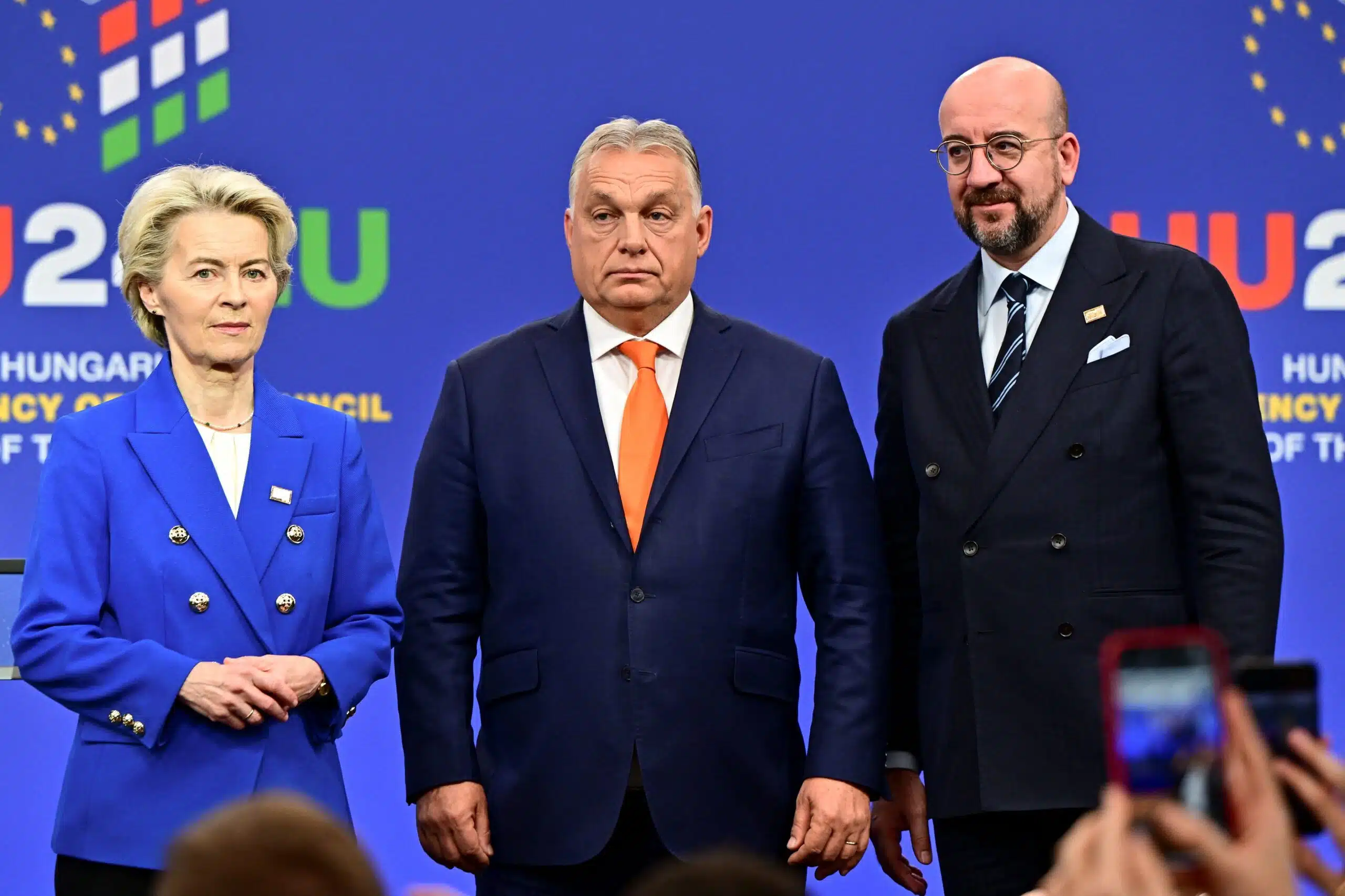In the wake of Donald Trump’s reelection, European leaders convened in Budapest with a renewed focus on strengthening their defense capabilities and fostering greater independence from the United States. This gathering comes at a time of significant political upheaval within Europe, highlighted by the collapse of Germany’s coalition government. As the continent grapples with these developments, the need for a cohesive defense strategy becomes more pressing than ever.
A New Era for European Defense
Trump’s return to the White House has sent shockwaves through European capitals, reviving concerns about the reliability of the US as a security partner. During his previous term, Trump often criticized NATO allies for not meeting defense spending commitments, casting doubt on the US’s willingness to uphold its defense obligations. In response, European leaders are now more determined to take control of their security destiny. Hungarian Prime Minister Viktor Orban, a staunch Trump ally, emphasized the urgency of this shift, stating, “We cannot wait for the Americans to protect us.”
Germany’s Political Instability: A Challenge for Europe
Adding to the complexity of the current geopolitical landscape is the political instability in Germany. The recent collapse of its three-party coalition government under Chancellor Olaf Scholz has left Germany, Europe’s largest economy, in a state of uncertainty. This development threatens to weaken Europe’s collective bargaining power and complicates efforts to forge a unified defense policy. European Parliament President Roberta Metsola underscored the importance of Germany’s stability, noting, “One thing is for sure, Europe is not strong without a strong Germany.”
Diverging Views on Ukraine Support
The Budapest summit also revealed divisions among European leaders regarding support for Ukraine. While Hungarian Prime Minister Orban has called for a reevaluation of Europe’s stance, other leaders, including European Commission chief Ursula von der Leyen, stressed the importance of continued support for Ukraine. The ongoing conflict with Russia remains a critical issue, and how Europe responds will have far-reaching implications for its security and geopolitical standing.
Economic Ramifications: The Threat of a Trade War
Not only are European leaders concerned about the defense sector, but they are also concerned about the economic repercussions of Trump’s reelection. Petteri Orpo, the Prime Minister of Finland, has expressed his concerns regarding the possibility of a trade war with the United States, which could have a devastating impact on the economies of European countries. To successfully navigate these challenges, the European Union (EU) must now exercise caution and strike a balance between the necessity of economic cooperation with the United States and the backdrop of increased self-reliance in defense.
The Geopolitical Implications of a Stronger Europe
Despite these challenges, there is a growing consensus among European leaders that a more independent Europe is beneficial not only for the continent but also for its transatlantic relationship with the US. French President Emmanuel Macron has long advocated for greater European defense cooperation, warning against Europe becoming a “herbivore” in a world of “carnivores.” There is the potential for Europe to become a stabilizing force in global geopolitics if it becomes more powerful and united. This would allow Europe to more effectively assert its interests on the international stage.
Building a Cohesive European Strategy
As Europe faces these multifaceted challenges, the path forward requires a delicate balance of diplomacy, strategic investment in defense capabilities, and political unity. The recent summit in Budapest marks a pivotal moment for European leaders to redefine their roles on the global stage. By fostering a stronger defense framework and addressing internal political instabilities, Europe can better position itself to navigate the uncertainties of the new geopolitical era.
In conclusion, the combination of Trump’s reelection and Germany’s political upheaval presents both challenges and opportunities for Europe. The continent’s leaders are now tasked with charting a course that not only ensures their security and economic stability but also strengthens Europe’s voice in the international arena. As these dynamics unfold, the importance of collaboration and resilience among European nations cannot be overstated.


